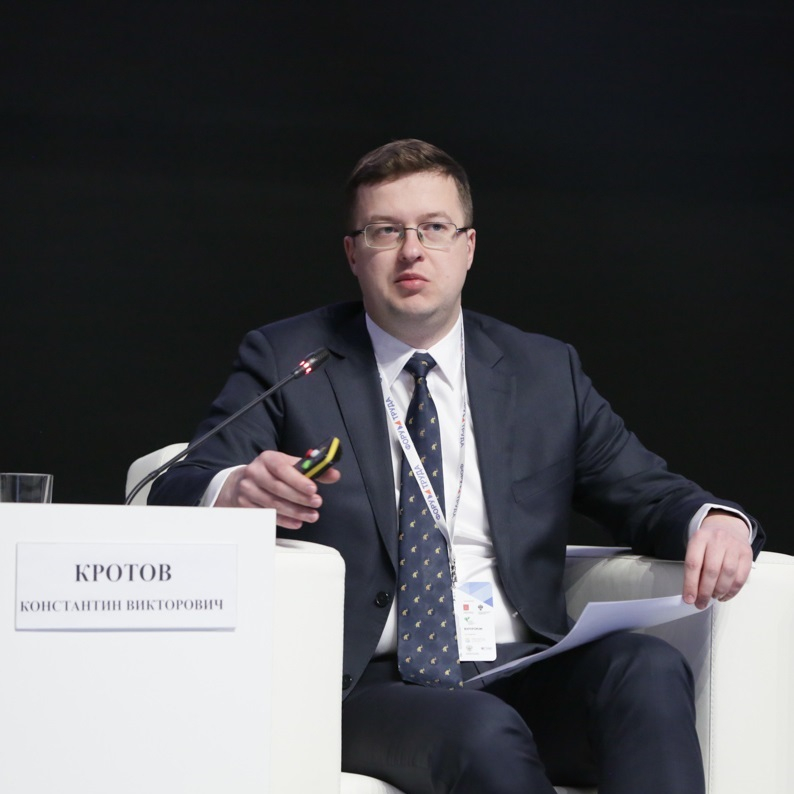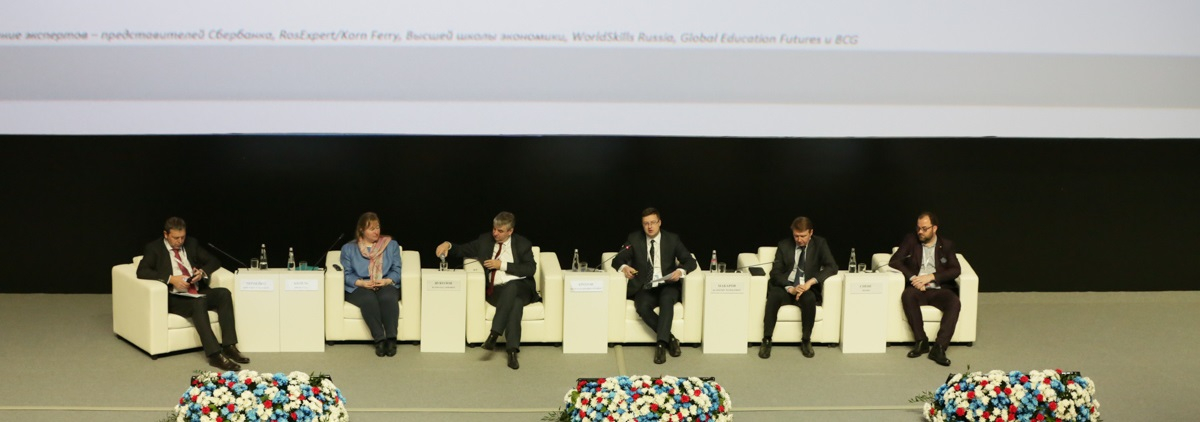5 March 2018
The St. Petersburg International Labor Forum hosted a plenary session "Human Capital and Labor of the Future", on the eve of which were Valentina Matvienko, Grigoriy Poltavchenko, Olga Golodets. Future work issues were discussed by the Executive Secretary of the World Association of Public Employment Services, the Head of the Federal Service for Labor and Employment, and the Head of School, GSOM SPbU Konstantin Krotov and others.
![]()
The participants of the discussion pointed out the necessity for specialists to continue development of skills, caused by the rapid development of technology. At the same time, there is no consensus on the forecast of changes in the structure of employment, even for the next 5 years.
What we can wait in changing the labor market?
|
According to Konstantin Krotov, many politicians, publicists and sociologists predict a sharp decline in the demand for human labor in connection with the onset of the Fourth Technological Revolution. But some researchers, including Daron Acemoglu, Pascual Restrepo, predict a positive impact of technological progress on employment. Another opinion is that not so much the level of demand changes as its structure - the professions become obsolete, there is a need for new ones.
This means that the issue of providing high-level basic and executive education continues to be relevant. Also, for the effective development of human capital and the country's economy, today it is necessary to interact closely with employers in the educational process, to clearly understand their needs and to "educate" popular specialists. |
 |
It is important to improve the level of public education outside of corporate universities and organizational training centers. Dmitriy Cherneyko, Chairman of the Committee on Labor and Employment, a graduate of St. Petersburg University with a degree in economics, a professor of political economy, who moderated the meeting, noted the important features of today's economic changes. In his view, the number of large companies that can afford to maintain corporate universities, training centers and create customized programs, is decreasing, giving way to start-ups and small businesses.
Competency model: what a specialist should know today
Konstantin Krotov presented the target model of competencies 2025, developed by The Boston Consulting Group, according to which for effective functioning in the modern world, a popular specialist needs to have the following skills:
| COGNITIVE SKILLS: | SOCIAL-BEHAVIORAL SKILLS: |
|
1. Self-development a. Self-awareness 2. Organization a. Self-organization 3. Managerial skills a. Prioritization 4. Achieving Results a. Responsibility, acceptance of risk 5. Solution of non-standard tasks a. Creativity, including the ability to see the possibilities 6. Adaptability a. Work in conditions of uncertainty |
1. Communication a. Presentation 2. Interpersonal skills a. Teamwork 3. Intercultural interaction a. Awareness |
| DIGITAL SKILLS: | |
|
1. Creation of systems a. Programming 2. Information Management a. Data processing and analysis |
"The quality of knowledge of students we admit is very important to us"
Konstantin Krotov gave examples of how the development of students' skills in the required areas is being realized at the Graduate School of Management of St. Petersburg University. To implement the skills of self-development, there is a Talent Up! Mentoring program, which involves a long-term interaction with a graduate mentor, selected on the basis of specific goals and interests. Experience in managing projects and events students receive by participating in competitions of corporate partners and university startup competitions.
In the School, there is a practice of student council systems and support for student initiatives that help them develop responsibility, initiative and perseverance in achieving goals. The curriculum includes case studies, discussions and debates aimed at developing critical thinking and the ability to solve non-standard problems. In addition, students learn to organize their own time, plan extra-curricular activities, choosing from a large number of opportunities offered by the School.
Design and implementation of programs
At the end of the presentation Konstantin Krotov spoke about the practice of regular monitoring of the quality and relevance of educational programs. Among the factors influencing the success of the program, he singled out:
Speaking about the factor "analysis of external signals," Konstantin Krotov told about School’s the accreditations and explained their feasibility: "We want to test ourselves for compliance with world practices every 5 years".

При использовании данного сайта Вы подтверждаете свое согласие на использование ВШМ СПбГУ cookie файлов. С подробной информацией Вы можете ознакомиться, перейдя по ссылке.